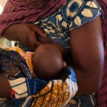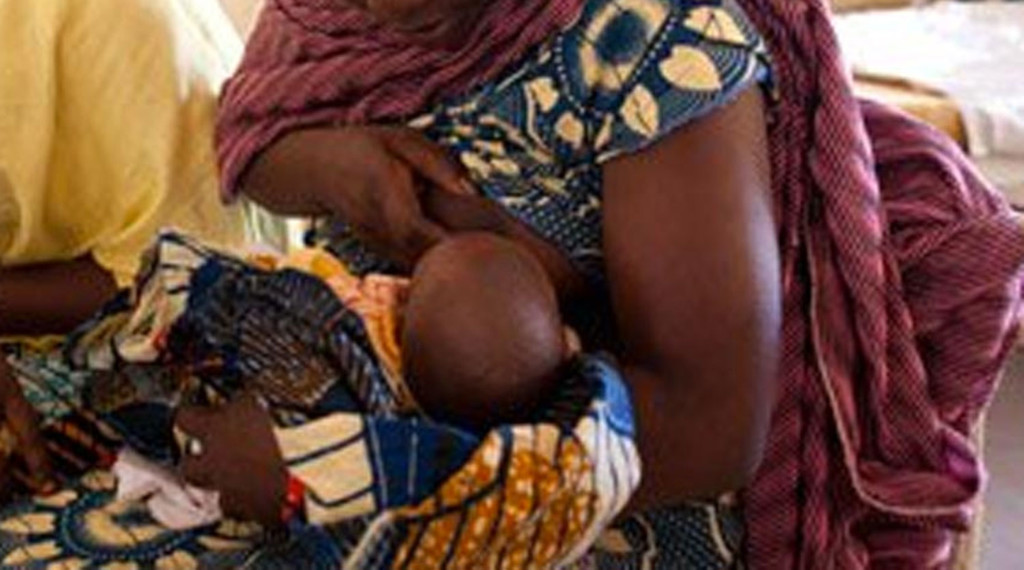Nigeria losing 20,000 women annually to poor breastfeeding, says FG

UNICEF: Nigeria has a long way to go on early initiation and exclusive breastfeeding

By Joseph Erunke
ABUJA – AN estimated 20,000 women die every year in Nigeria due to poor breastfeeding, the federal government said Tuesday.
To this end, the government has recommended early initiation of breastfeeding within an hour of birth, exclusive breastfeeding for the first six months of life, continued breastfeeding up to two years of age or beyond and introduction of appropriate complementary food as from six months.
Minister of Health, Osagie Ehanire, speaking at a media conference held in Abuja, to commemorate the 2020 Breastfeeding Week with the theme: “Support Breastfeeding for a healthier planet”, reiterated the importance of exclusive breastfeeding for children.
Expressing the government’s concern that an estimated 20,000 women die annually due to poor breastfeeding, the minister said the benefit of breastfeeding to both mother and baby had been well documented including giving babies stronger immunity and reducing risk of suffering many childhood illnesses and infections.
“It is also associated with longer-term health benefits including reduced risk of overweight and obesity in childhood and adolescence. Studies have shown that obesity rates are 15-30 per cent lower in breastfed babies compared to formula-fed babies,”he said.
According to him,“The World Health Organization, in a series of Lancet publications on breastfeeding, reports that scaling up breastfeeding practices to almost universal level could prevent an estimated 823 000 annual deaths, or 13·8 per cent of all deaths of children younger than 24 months.”
He added: “Breastfeeding also provides health benefits to mothers, by helping to prevent postpartum bleeding, support child spacing, lower the risk of breast and ovarian cancers and earlier return to pre-pregnancy body weight. An estimated 20,000 maternal deaths could be prevented annually if optimal breastfeeding were practised.”
He, however, regretted that despite the benefits, the breastfeeding indices in Nigeria had fallen below optimal.
He cited the National Demographic and Health Survey 2018, which indicated that 97 per cent of children were breastfed at one point or the other, while only 42 per cent are put to the breast within 1 hour of birth and the proportion of children 0 to 6 months who are exclusively breastfed stood a pt just 29 per cent.
READ ALSO: Exclusive breastfeeding: Changing the narrative
According to him, as part of measures to increase optimal breastfeeding practices, the Federal Ministry of Health developed the national social and behavioural change strategy for infant and young child feeding.
Ehanire said a major barrier to its proper implementation “is the practice by mothers and caregivers, on giving water to babies from birth to the age of six months.”
To address the problem, he said the FMOH launched the National Zero Water Campaign which is now ongoing in several states during the 2019 World Breastfeeding Week celebration, to educate Nigerians on the need to give babies only breast milk only, and no other liquids in the first six months of life.
Ehanire, who said the National Guidelines on the Baby-Friendly Initiative “is currently being reviewed”, stressed that it encompassed baby-friendly services in the hospital, community and workplace, saying its goal is to incorporate programming breastfeeding as an integrated delivery in routine services.
At the event jointly organised by Civil Society-Scaling Up Nutrition in Nigeria, Alive and Thrive, UNICEF, Nutrition International, Breakthrough Action, Action Against Hunger, HKI and Save the Children, the Executive Secretary, CS-SUNN, Beatrice Eluaka, said the organisation would do anything to support breastfeeding in Nigeria.
“The event is a very big one as we know the importance of breastfeeding to our children, mothers and the country at large. We want to do everything possible to promote, support and protect breastfeeding.
“Climate change and environmental degradation are the major challenges that we are facing in the world today. But what are the better ways to protect our environment than breastfeeding? We don’t have to prepare anything to feed the child, you don’t need fuel, firewood to boil water, and sanitise the equipment that really needed because it comes naturally from the mother to the child,” she said.
On his part, Minister of State for Health, Dr. Olorunimbe Mamora, said that with breastfeeding, the child benefits with reduced risks of infectious diseases, incidence and severity of diarrhoea, lowers respiratory infections and acute otitis media, prevents dental caries and malocclusion and increases intelligence.
He, however, said that “not breastfeeding at all is reported to be associated with lower intelligence and results in economic losses of about $302 billion annually”, but did not give details.
On the other hand, not breastfeeding at all is reported to be associated with lower intelligence and results in economic losses of about $302 billion annually.
The UNICEF Representative in Nigeria, Peter Hawkins, said early initiation and exclusive breastfeeding had been in serious crisis in Nigeria.
He said, “Breastfeeding is unique when women are fully supported to exclusively breastfeed their children, it can be practices that give everyone the first start in life and lays the foundation for good health, quality development and the survival of children and their mothers.
“In Nigeria, almost all children, 97 per cent were breastfed at some point. When it comes to early initiation and exclusive breastfeeding, we have a long way to go. The rate of exclusive breastfeeding in Nigeria are recorded at 24.5 per cent in 2014 and 29 per cent in 2018.”
The post Nigeria losing 20,000 women annually to poor breastfeeding, says FG appeared first on Vanguard News.
from News – Vanguard News https://ift.tt/30ybEZH
via IFTTT
No comments